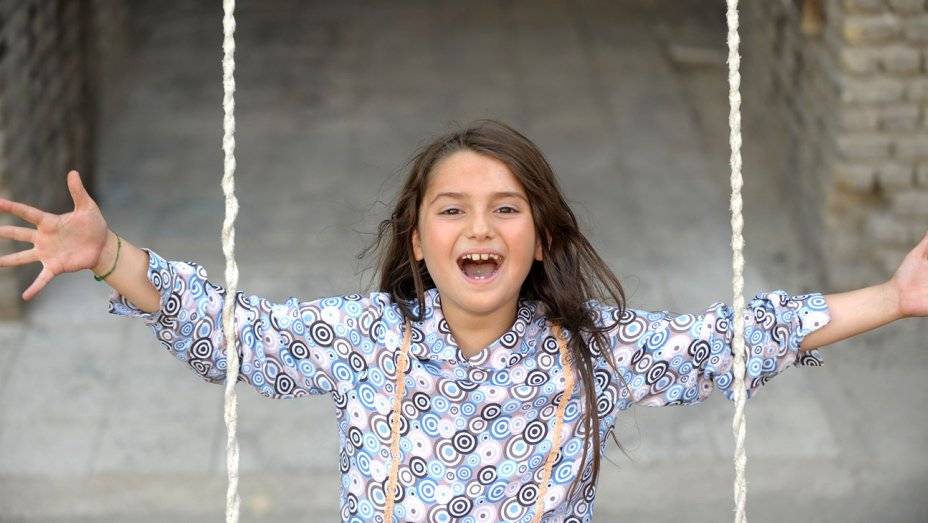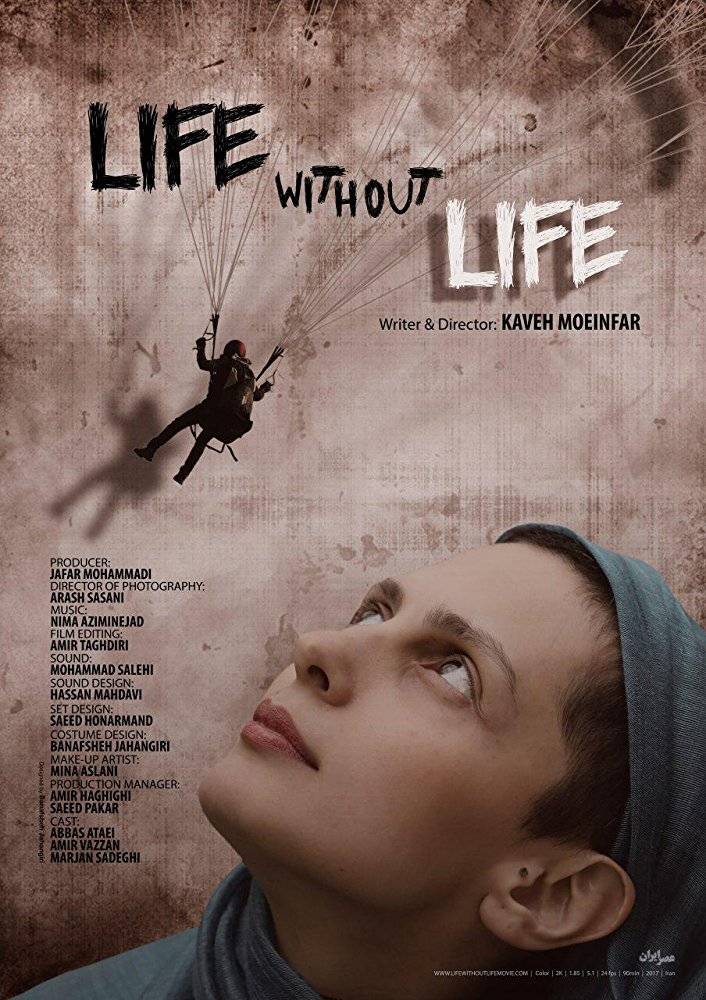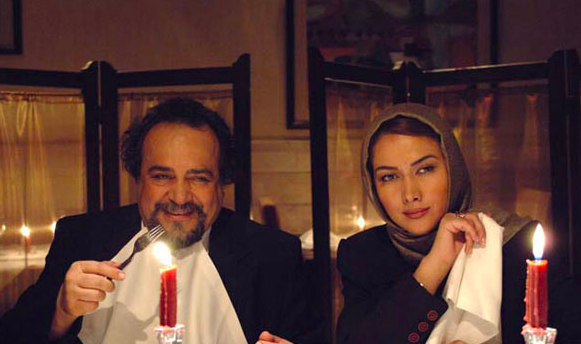1) Joint-production Between Iran and the US ‘1st Born’ Finishes Principle Photography
Ali Atshani and Sam Khoze’s upcoming 1st Born, which we’ve written about before, has reportedly completed principal photography. The historic joint production between the US and Iran has been notable since its reveal earlier in the year, with a cast that started off with Val Kilmer, Jay Abdo, and Tom Berenger (as Trump).
Additional actors signed on since its initial announcements, including Denise Richards, William Baldwin, Anoush Sadegh, and Reza Sixo Safai of A Girl Walks Home Alone At Night, among many others.

Co-director and producer Khoze “…hopes this film, especially [with] it being a comedy, will help bridge the gap between the US and Iran through humor and hopefully open the doors to more joint US/Iranian productions (and other countries) to work together creatively in the future.”
2) Elusive Iranian Film ‘Forbidden’ Has a December Release Date in the UK
Director Hassan Yektapanah’s 2016 film Forbidden is officially coming to the UK, after a very limited international release last year and an (unconfirmed) debut in Tehran in March 2017. Yektapanah’s film is his first since 2008’s Bibi, but he is perhaps best known for Djomeh, which took home the coveted Caméra d’Or at the 2000 Cannes Film Festival. This award led to extensive coverage of the filmmaker at the turn of the century, leading to a current aggregated 90% on Rotten Tomatoes as of this writing.
Since then, Yektapanah has been largely absent from major film news. Hopefully Forbidden has a welcome tour of the UK, fueling a wider international release in 2018.
3) First Review Arrives For Narges Abyar’s ‘Breath’

Deborah Young of The Hollywood Reporter has done the courtesy of breaking the seal on critics’ impressions of Narges Abyar’s Oscar submission for Iran, Breath. In her review of the film on Monday, Young describes the film in detail, a story told from the point of view of 9-year-old rural-dwelling girl Bahar during the difficulties of late 70s/early 80s Iran. “Bahar’s life is a mixture of hardship, fun and joy, emotions little [Sareh Nour] Mousavi expresses with utter spontaneity and conviction. Her perpetually tangled hair is the symbol of a wild, untamed streak that makes her such a strong, endearing heroine and survivor.”
Abyar has been outspoken against certain aspects of Iran’s government, and they’ve responded on the record in turn. As Breath continues it’s tour (it’s sadly not returning to US theaters in the near future), we’ll keep an eye on it’s critical reception en route to the Academy Awards in March of next year.
4) Iranian Films Take Home Six Special Awards at Mediterranean Film Festival
Cannes is home to more than one filmfest, and a recent showing of the Mediterranean Film Festival Cannes included three entries by Iranian filmmakers. Life Without Life by Kaveh Moeinfar, A Baby With Red Socks by Khodadad Jalali, and the short film Mediterranean Dreams by Misagh Bahraloloomian fared against entries from around the world.
Iranian composer Sattar Oraki (who also contributed to A Separation) took home a Special Award (part of a section designated to filmmakers from Middle Eastern countries) for his score for A Baby With Red Socks, and director Jalali was awarded Best Director. In all, six awards were given to Iranian filmmakers and films, with additional nominations and placements as well.
This is the second annual Mediterranean Film Festival Cannes since its debut in 2016.
5) Mohammad Reza Sharifinia is the Harvey Weinstein of Iranian Cinema
In an eye-opening article, courtesy of IranWire, reporter Parvaneh Masoumi speaks with an actress who will not share her name at this time, but will share her experiences. With the recent increased circulation of the #MeToo hashtag and movement, which then became adopted by women in Iran, these stories have become a vital proof that there is a sea change happening in entertainment production, one that is powered by brave women who are willing to expose the dangerous standards of their industry.
In addition to veteran actor Mohammad Reza Sharifinia—himself a father to two daughters, mind you—Masoumi’s article also features the actress’ description of improper conduct and behavior from filmmaker Sirus Alvand. An untold narrative seems to be surfacing from beneath Iran’s filmmaking world, though it is further complicated by the industry’s political demarcations.

Apparently Sharifinia “…was a member of the People’s Mojahedin Organization (which the Islamic Republic classifies as a terrorist organization), spent some time in prison, and was then released after he repented. Today, he is completely neutral politically.” Despite reports from weekly (IRGC-affiliated) newspaper Sobh-e Sadegh that describe Sharifinia asking women to disrobe and perform “certain movements” for him, none of the actresses IranWire contacted were able to confirm this accusation for the purposes of the article. This only adds a murkiness to genuinely exposing predators within Iran’s cinema world.
As time goes on, we expect (and hope) that these reports are just the beginning.






